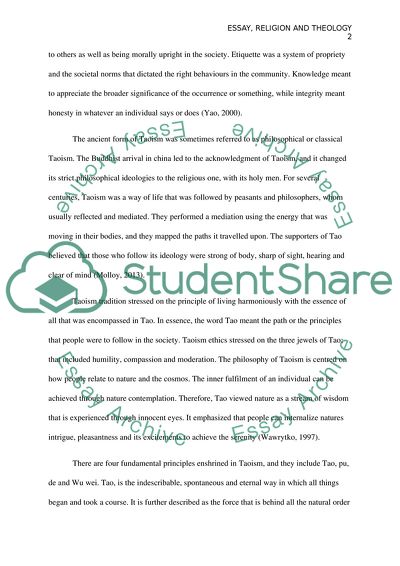Cite this document
(Influences of Confucianism and Taoism on Chinese People Essay, n.d.)
Influences of Confucianism and Taoism on Chinese People Essay. https://studentshare.org/religion-and-theology/1851090-in-both-confucianism-and-taoism-there-is-a-concept-of-the-superior-man-name-and-define-some-of-the-principles-which-are-embodied-in-the-superior-man-according-to-each-religion-and-compare-them
Influences of Confucianism and Taoism on Chinese People Essay. https://studentshare.org/religion-and-theology/1851090-in-both-confucianism-and-taoism-there-is-a-concept-of-the-superior-man-name-and-define-some-of-the-principles-which-are-embodied-in-the-superior-man-according-to-each-religion-and-compare-them
(Influences of Confucianism and Taoism on Chinese People Essay)
Influences of Confucianism and Taoism on Chinese People Essay. https://studentshare.org/religion-and-theology/1851090-in-both-confucianism-and-taoism-there-is-a-concept-of-the-superior-man-name-and-define-some-of-the-principles-which-are-embodied-in-the-superior-man-according-to-each-religion-and-compare-them.
Influences of Confucianism and Taoism on Chinese People Essay. https://studentshare.org/religion-and-theology/1851090-in-both-confucianism-and-taoism-there-is-a-concept-of-the-superior-man-name-and-define-some-of-the-principles-which-are-embodied-in-the-superior-man-according-to-each-religion-and-compare-them.
“Influences of Confucianism and Taoism on Chinese People Essay”. https://studentshare.org/religion-and-theology/1851090-in-both-confucianism-and-taoism-there-is-a-concept-of-the-superior-man-name-and-define-some-of-the-principles-which-are-embodied-in-the-superior-man-according-to-each-religion-and-compare-them.


